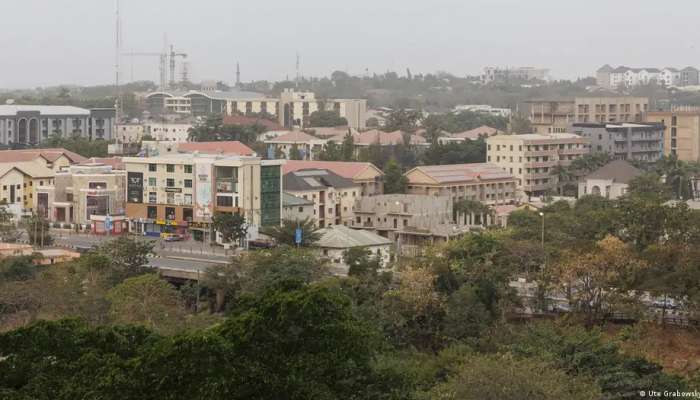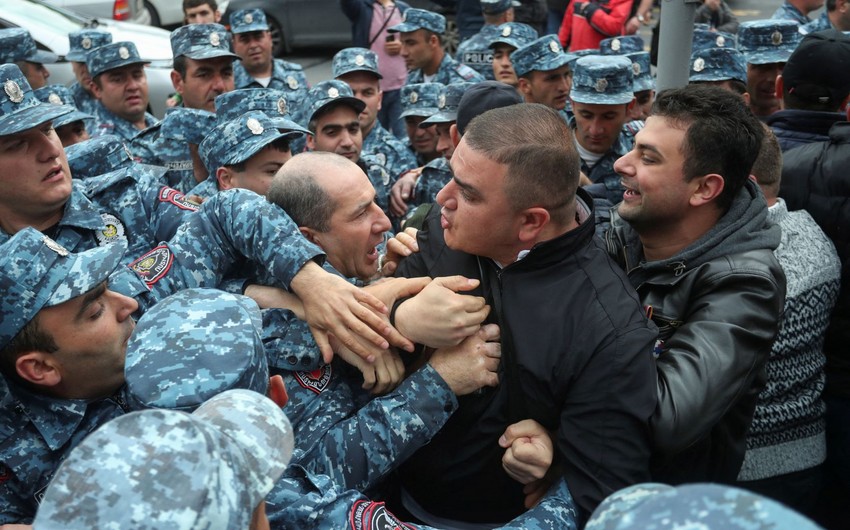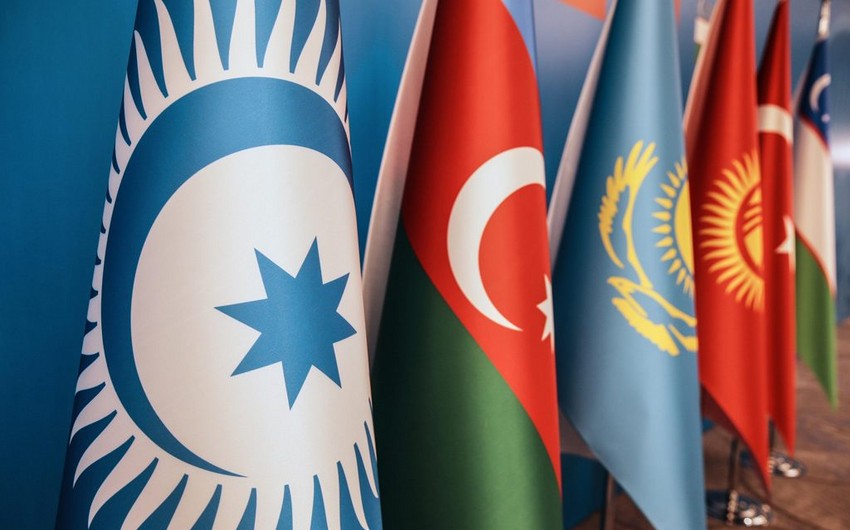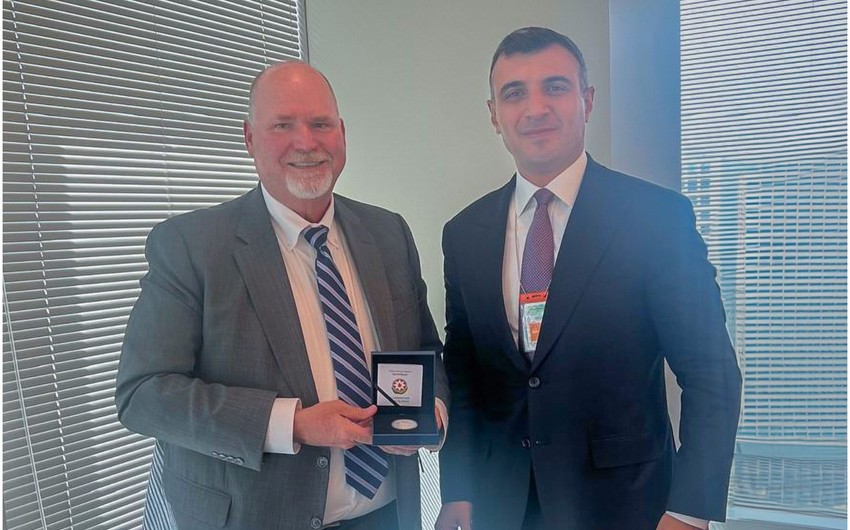It took the Soviet Union ten years to realize the futility of its military campaign in Afghanistan. It took the United States almost twice as long, almost twenty years, to realize that NATO forces, led by Washington, had lost the war in Afghanistan. The nickname "graveyard of empires" for Afghanistan fully justifies itself against the background of the current hasty withdrawal of the US and its allies from the Islamic Republic of Afghanistan (IRA), where the security situation is evolving rapidly and tends to degradation.
Oleg Golishnikov, an independent expert (Tashkent, Uzbekistan), told Eurasia Diary.
Washington was able to achieve limited objectives in the IRA, but even this, in the light of the futility of remaining on Afghan territory and obvious war weariness, was sufficient reason for the Americans to curtail their military mission in the IRA. However, the withdrawal of the US and NATO troops from Afghanistan does not mean that Washington is fully distancing itself from the Afghan problems. At least the U.S. political leadership has already indicated that it will provide full support to the Afghan government. The Americans may also influence the situation in the IRA through Turkey, which expressed its desire to guard the Kabul airport after the withdrawal of NATO troops. Ankara certainly has its own game in Afghanistan, but Turkey remains a key US NATO ally. If Ankara maintains its presence in the IRA, the U.S.-Turkish nexus on the Afghan track will be in demand for Washington. For the foreseeable future, the American factor in the IRA is likely to remain a defining one, including for geopolitical reasons - to keep China, Russia and Iran in tension.
Against this background, the deteriorating military and political situation in the IRA due to the intensified fighting between the Taliban and government forces cannot but cause concern for Afghanistan's neighbors, including Uzbekistan. This requires Tashkent to keep its finger on the pulse and adjust its policy towards Afghanistan depending on further developments in the IRA.
Taliban successes
According to media reports, the Taliban currently continue to retake territory from government forces in Afghanistan, capturing counties one after another. Most of the Taliban's successes to date have been limited to the countryside, while major cities remain impregnable, albeit subject to the Taliban's daring attacks and sorties. Significant advance of the Taliban can be observed in the northern part of the country - in areas bordering Central Asia where there is mainly a non-Pashtun population (local Tajiks, Uzbeks, Turkmens, etc.). According to the Taliban, by now almost all areas of Afghanistan bordering Central Asia have been taken over by the Taliban.
Fighting in northern Afghanistan has already led to the flight of hundreds of IRA government forces, making them cross the borders of the Central Asian countries of Tajikistan, Uzbekistan and Turkmenistan. For the Central Asian countries bordering Afghanistan, the situation is not critical at this time; anyone who crosses the border illegally from Afghan territory is usually sent back to Afghanistan. But the threat of a large influx of refugees because of the deteriorating situation in the IRA, including to Central Asian countries, persists. The UN is sounding the alarm that the current escalation of the conflict in the IRA is causing an increase in civilian casualties and displacement both within the country and to neighboring countries, warning that Afghanistan is heading for a humanitarian catastrophe.
Against the backdrop of the escalating situation in the IRA, the planned military exercises in Uzbekistan, Tajikistan and Kyrgyzstan with the participation of Russian military specialists look in particular demand. The military must be ready at all times to counter an attack from outside, even if it is unlikely to come from Afghanistan - the Taliban are concentrating on the domestic agenda, and to Washington's credit, the extremist and terrorist organizations, consisting of Central Asian and North Caucasian nationals, have thinned considerably during the NATO military campaign in the IRA. In addition, all Central Asian countries bordering Afghanistan have enough forces to deal with a direct military threat on their southern borders. In case of emergency, the Central Asian states can make use of Russia's capabilities in the region both through the CSTO and through bilateral agreements. Moscow has already indicated that it is ready to provide the necessary assistance.
The international community continues to call on all conflicting parties to end violence, but the negotiation process between the Taliban and representatives of the Afghan government remains deadlocked, with the parties accusing each other of speculation and undermining previous agreements. But in the ranks of the international community itself, the game around the Afghan question continues.
The Taliban are back in the game
Today, virtually all neighboring states and key extra-regional players have various contacts with the Taliban (or more precisely with its various factions). A real race is on between individual countries to see who can contribute more to a peaceful settlement in the IRA and, consequently, who can be more important in the pursuit of political points. And no one is bothered by the fact that the Taliban remain under international sanctions on the basis of UN Security Council resolutions, everyone prefers to act in the spirit of the classic realist paradigm - self-interest is paramount.
In recent years, representatives of the Taliban political office have been frequent visitors in Ankara, Ashgabat, Islamabad, Moscow, Tashkent and Tehran, not to mention the forced American deal with the Taliban in Qatar in February 2020. Even India, whose tense relations with Pakistan have a destabilizing effect on the situation in Afghanistan, is seen forging contacts with the Taliban. Only Dushanbe seems to be standing apart; its aversion to the Taliban is probably influenced by the memory of the civil war in Tajikistan, when many militants from Afghanistan and Pakistan fought in the ranks of the Tajik opposition. But in the long term, trade and economic interests may force Dushanbe to take a more pragmatic approach to the need to engage with the Taliban.
It should be emphasized that the specifics of contacts with the Taliban are different, each guided by its own national interests, but almost all are reasonably afraid that another destabilization of the military and political situation in Afghanistan threatens their security. This is especially true for the countries bordering Afghanistan. This is not so much a direct military threat, as already noted, but rather a worsening and spreading of interconnected threats in the form of religious extremism, drug trafficking and terrorism, primarily through the activation and increasing influence of various terrorist groups deployed on Afghan territory. That is, they fear the same "classic" threats that Afghanistan has been a source of for many years. Only now, the scope may be wider, especially in the event of a large influx of Afghan refugees into Central Asia.
Many observers have noted (including in Afghanistan itself) that Pakistani intelligence services are behind the Taliban. There is some truth in this; even Washington has repeatedly accused its ally, Pakistan, of "double standards" in dealing with the Taliban. But today a variety of groups may fight under the Taliban banner, with conflicting or contradictory interests, so the influence of Islamabad on the Taliban is often exaggerated in expert and political circles and does not always correspond to reality. The degree of autonomy of the various Taliban groups from Pakistan should not be underestimated. The new destabilization of Afghanistan may lead to a reactivation of the Pakistani Taliban, particularly the Tehreek-eTaliban Pakistan, which until recently was Islamabad's main headache. Their full resurgence is clearly not in the interests of the Pakistani authorities. The less Islamabad interferes in Afghanistan, the more likely it is not to boomerang on Pakistan itself. In addition, Islamabad should seriously consider how to reduce the rise in anti-Pakistani sentiments among various groups within the political elite of the IRA and Afghan society.
Evolution in Tashkent's approaches
The Afghan issue has always been at the centre of attention of the Uzbek political leadership, and an Afghan settlement remains one of Uzbekistan's key foreign policy priorities. From the very beginning of the republic's independence, the first President of Uzbekistan, Islam Karimov, has constantly drawn the attention of the international community to the situation in Afghanistan, calling on it to take the necessary measures to resolve the Afghan question. Tashkent's main motives were, above all, security and economic.
In the early 1990s, the unfolding civil war in neighboring Tajikistan and the deteriorating situation in Afghanistan put the Uzbek political leadership in a difficult position - there was still a threat of instability spilling over into Uzbek territory against the background of the emergence of extremist elements within Uzbekistan itself, primarily in the Fergana Valley. These include: The Islamic Movement of Uzbekistan, Hizb ut-Tahrir and others who advocated the creation of a semblance of a "caliphate" on the territory of Uzbekistan and other Central Asian countries.
But if by the mid-1990s the situation in Tajikistan had been stabilized, including with the help of Uzbekistan, the situation in neighboring Afghanistan only worsened with the Taliban coming to power in Kabul. And those extremists and terrorists that the Uzbek authorities did not manage to neutralise inside Uzbekistan migrated to Afghanistan under the wing of the Taliban, where they gained support. Afghanistan's territory has essentially become a safe haven for various extremist and terrorist groups, and their links with the Taliban have not been concealed. Afghanistan's reputation as a source of international threats was firmly cemented. In this regard, Tashkent, together with Russia and other players, were forced to bet on the warlords of Afghanistan, who united under the Northern Alliance and opposed the Taliban. The predominantly non-Pashtun areas controlled by the Northern Alliance were in effect a 'buffer zone' for the Central Asian countries, including Uzbekistan.
At the same time, there was a growing conviction in Tashkent that stability in Afghanistan could not be achieved without the reconciliation of all conflicting parties, including the Taliban. In this context, Tashkent stepped up diplomatic efforts to solve the Afghan problem, which culminated in 1997 with the establishment of a "6+2" contact group under the aegis of the United Nations, comprising Afghanistan's neighbors plus Russia and the United States. The main result of this group's work was the signing of the Tashkent Declaration in July 1999. The main outcome of the group's work was the Tashkent Declaration stating the basic principles for peaceful resolution of the conflict in Afghanistan.
However, the military campaign launched in 2001 by the US and its allies in the IRA as a "response" to the 9/11 attacks radically changed the balance of power in Afghanistan. The Taliban's power was overthrown; naturally, nobody paid any attention to the provisions of the Tashkent Declaration of 1999. Against the background of the US-led NATO action and the retreat of the Taliban remnants to the south of Afghanistan in the 2000s there was a consistent disintegration of the "Northern Alliance". Among the leaders of the ethnic groups in the Northern Alliance there was growing discord, each of them seeing an opportunity to expand their sphere of influence in the territories freed from the Taliban, including by lobbying for key positions in the American-formed Afghan government.
At the same time, the arrival of the Americans and coalition troops on Afghan soil raised the importance of Central Asia as one of Washington's key priorities in Afghanistan. And Uzbekistan, as one of the active participants in promoting an Afghan settlement, was given a special role, which was determined by its geostrategic location and a certain influence in the north of Afghanistan. In 2001-2005, the US military base K2 was located in Uzbekistan. As part of assistance to NATO coalition forces in the IRA in 2001-2015, Uzbekistan provided a strongpoint for the FRG air forces near Termez on the border with Afghanistan. One can also note Uzbekistan's participation in the Northern Distribution Network; assistance in transporting humanitarian cargoes to the IRA. On the diplomatic front, since 2008. Tashkent sought to revive the '6+2' contact group, branded '6+3', which would have included NATO as well, but this initiative never materialized.
Uzbekistan's policy on Afghanistan was not limited to security issues. Since the early 1990s, Uzbekistan has dreamed of opening a 'southern gateway' - the implementation of transport and communications projects, above all a railway link through Afghanistan with further access to the Indian Ocean, which would allow Uzbekistan to significantly diversify its trade and economic relations. Under Karimov, Uzbekistan has repeatedly attempted to promote trans-Afghan rail links. For example, in 2003, at Tashkent's initiative, an agreement was signed between Uzbekistan, Iran, and Afghanistan to establish an International Trans-Afghan Transport Corridor, and the Hairatan-Mazar-e-Sharif-Herat railway project was seen as part of that corridor on the basis of the Uzbek-Afghan memorandum of 2008. In 2010, Uzbekistan completed the railway line from Hairatan to Mazar-e-Sharif, but the implementation of the trans-Afghan railway has not moved beyond this, primarily due to the continued difficult security situation in Afghanistan, especially after the withdrawal of NATO's main contingent from Afghan territory in 2014.
Since Shavkat Mirziyoyev came to power in Uzbekistan in December 2016, Tashkent has maintained the continuity of the Uzbek policy towards Afghanistan. This policy was given added impetus by President Mirziyoyev's general policy of developing good neighborly relations in the region. Today, on the Afghan track, Tashkent continues to assume that there is no military solution to the Afghan conflict, and that the involvement of all conflicting parties in the intra-Afghan negotiation process will open the way to peace in Afghanistan.
The Uzbek authorities support all international formats and platforms initiated by the key players and designed to facilitate an Afghan settlement. And Uzbekistan itself continues to be an active participant in this process, as evidenced by the high-level conference on Afghanistan held in Tashkent in March 2018, the regular meetings of the Uzbek establishment with leaders of the conflicting parties, and the creation of new platforms (US-Uzbekistan-Afghanistan-Pakistan) to support the Afghan peace process.
In addition to the legacy of the previous period, two new conceptual nuances have emerged in contemporary Uzbek policy towards Afghanistan. Firstly, Afghanistan is already seen as an integral part of Central Asia. Secondly, Tashkent proposes to see Afghanistan not as a source of threats, but as a friendly neighbor and a source of opportunities. In general terms, this is about broader involvement of Afghanistan, first of all, in trade, economic, transport and communication ties with Central Asia, and Afghanistan itself, as it was declared at the Tashkent conference in July 2021, is considered as one of the "key links in the practical interconnectedness of Central Asia and South Asia". In this way, it is argued that increased economic cooperation in this area would contribute to security, including in Afghanistan.
In this context, two major Trans-Afghan Railway (TAR) projects are still under discussion in Uzbekistan today. The first is the Mazar-e-Sharif-Herat TAR project with further access to Iranian ports (conditionally Iranian direction) and the second is the Mazar-e-Sharif-Kabul-Peshawar TAR project with further access to Pakistani ports (conditionally Pakistanian direction).
For the first project, an agreement was signed between Uzbekistan and Afghanistan in 2017 to build a railway to Herat. With regard to the Pakistan-bound TAR project, a protocol was first signed at the end of 2018 to establish a joint working group and financial consortium of the railway authorities of Uzbekistan, Russia, Kazakhstan, Afghanistan and Pakistan. In November 2020, a decree of the President of Uzbekistan was issued as part of the measures to implement this TAR project, and in February 2021 Uzbekistan, Afghanistan and Pakistan have adopted a road map for its implementation. At present, in all official events and speeches of Tashkent at the highest level, the TAR project with Pakistani direction is actively promoted as a key project ("project of the century"). The various advantages of this project, including its possible economic and political effect, are highlighted.
It is obvious that, at the moment, the Pakistani component of the Uzbek strategy for developing the Trans-Afghan Railway prevails over its Iranian component. The reasons for this situation can only be guessed at. They may be political; they may be Tashkent's desire to improve relations with Pakistan, and they may be Uzbekistan's desire to use Islamabad's influence in the IRA. Perhaps the continuing strained relations between Washington and Iran, particularly in light of the assessment of the regional situation after the assassination of Iranian General Qassem Suleimani in January 2020, have played their part, making the Iranian route of the TAR more risky and less promising. Potential economic reasons may include the higher profitability of the TAR project to Peshawar or Tashkent ceasing to see the feasibility of TAR to Herat, given the existing transport links to Iranian ports. The possibility of ongoing bargaining with external interested players is not excluded, and the situation may change depending on the outcome of such bargaining. In any case, whatever the real reasons, for Uzbekistan both the Iranian and Pakistani TAR projects are important, but at the moment Tashkent is giving priority to the railway route through Afghanistan towards Pakistan and its ports.
Uzbekistan's “Project of the Century”
The Uzbek authorities seek to involve all stakeholders in the implementation of the TAR to Peshawar and to gain the support of key players in this matter. In essence, Tashkent is offering a "win-win" formula, where everyone, including Afghanistan, stands to gain. The inclusive nature of Uzbekistan's approach to the TAR is explained, first, by the need to attract resources (primarily financial) for the project, and second, by the desire to minimise the possibility of the project becoming a hostage to geopolitical games.
To this end, Tashkent, among other players, is actively probing the participation of Russia and the Eurasian Economic Union (EAEU) in the implementation of the TAR. Two nuances cannot be overlooked here. On the one hand, Moscow is interested in preserving the dominance of the "northern" orientation of trade, economic, energy and transport and logistics flows of Central Asian countries. On the other hand, the growing confrontation between Russia and the West, the tightening of sanctions battles between them, and the growing risks are forcing Moscow to reconsider its political, trade and economic relations and to fill them with "non-Western" content. In this context, Russia's declared pivot to the East has so far stalled and has turned out to be more of a pivot to China. For Russia, therefore, participation in the TAR project could dilute the dominance of the Chinese factor in its eastern policy with the South Asian 'gateway' and open new trade and economic opportunities both for Russia and for the EAEU as a whole. In this way, Moscow could obtain a much more important asset, which would be another step towards the formation of a Greater Eurasian Partnership than simply trying to keep Central Asia tied to the 'north'.
In the geopolitical configuration of forces around this project, India should also be taken into account. New Delhi is unlikely to be happy about Islamabad's growing position in pulling rail freight from the north through Afghanistan to Pakistani ports and back, especially in the context of strengthening ties between strategic adversaries of India - Pakistan and China. Applying the win-win formula, Tashkent should consider the forms of Indian participation in this project in order to balance the interests of Islamabad and New Delhi. The latter could also be in Moscow's interest; in this form the TAR project, with the active involvement of Russia, could become a link and a factor for institutionalizing relations between the EAEU and the South Asian Association for Regional Cooperation (SAARC), which includes both Pakistan and India. In broader conceptual terms, Tashkent could propose the TAR project under the guise of an interface between the EAEU, the SREB and SAARC, which would be a convergence of the interests of key players and integration initiatives. This could fit seamlessly into Uzbekistan's recent proposal to study and work on a multilateral agreement on economic cooperation between Central Asian and South Asian countries.
Uzbekistan, like the other Central Asian states, needs the southern gateway like air. But even if we omit all the difficulties of attracting external financing, technical design and geopolitical mosaic, the basic condition for the implementation of such projects through Afghan territory (be it the TAR, TAPI, CASA-1000, etc.) is peace and stability in the IRA. Without this condition, it will be difficult for the Central Asian countries to move forward in the practical implementation of the above-mentioned projects due to high risks. And until the issue of security in Afghanistan is resolved, any major infrastructure projects passing through Afghan territory risk being postponed indefinitely, as does the enthusiasm for the dream of a "southern gateway" to Afghanistan.
If the implementation of the TJD project is delayed for various reasons, Tashkent should focus in parallel on expanding existing and promoting new transport and logistics projects to the south via Turkmenistan and Iran with access to the latter's ports and return to the TAR idea when the basic conditions for this are in place. For this to happen, it will be necessary to continue active efforts for the peaceful settlement and stabilization of Afghanistan.
In lieu of a conclusion or Taliban 2.0
The umbrella nature of the Taliban and other groups, against the background of continuing inter-ethnic, tribal and clan divisions in Afghanistan, allows some key players to "fish in troubled waters", based on their own interests, including in the confrontation with their geopolitical rivals. And unless these players stop "ordering music" from various forces in the IRA, peace will not come to Afghanistan for a long time to come. On the part of individual countries the Taliban have long been de facto recognized as a political force in Afghanistan. If, in the near future, the Taliban completely seize power in the IRA, the countries will have to work with what they have. And it is far from certain that there will be any hope for stability in Afghanistan under returning Emirati rule ("Taliban 2.0") and that the Afghan people will get the long-awaited peace.
Pragmatism towards the Taliban may bring some tactical dividends, but strategically there is a risk that such pragmatism will have unpredictable consequences, both for individual countries and for the world community as a whole. In any case, for the secularized countries of Central Asia, preventing radical and extremist ideas from penetrating from the southern flank will remain a priority on the path of democratic development. But even without outside influence, the unresolved structural problems of economic development, growing demography and the growing religiosity of the population in virtually all the states of the Central Asian region provide the basis for the spread of radicalism within the Central Asian countries themselves. And this is a much more serious story that needs to be addressed.
Under the most pessimistic scenario for the situation in Afghanistan, Tashkent and other players cannot rule out the possibility of reviving the “Northern Alliance”, although in today's conditions it will not be easy to do. But the option of recreating a semblance of a "buffer zone" along the perimeter of the borders of Central Asia in the north of Afghanistan in order to stem the flow of "classic" threats from the Afghan territory should be kept in reserve. As they say, just in case.

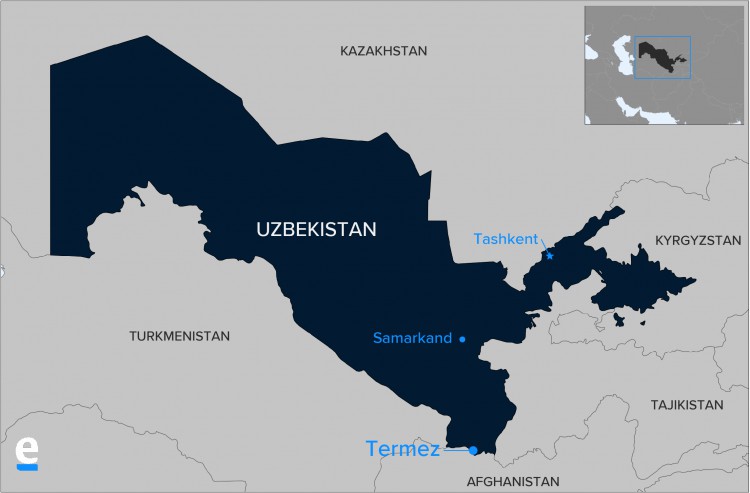




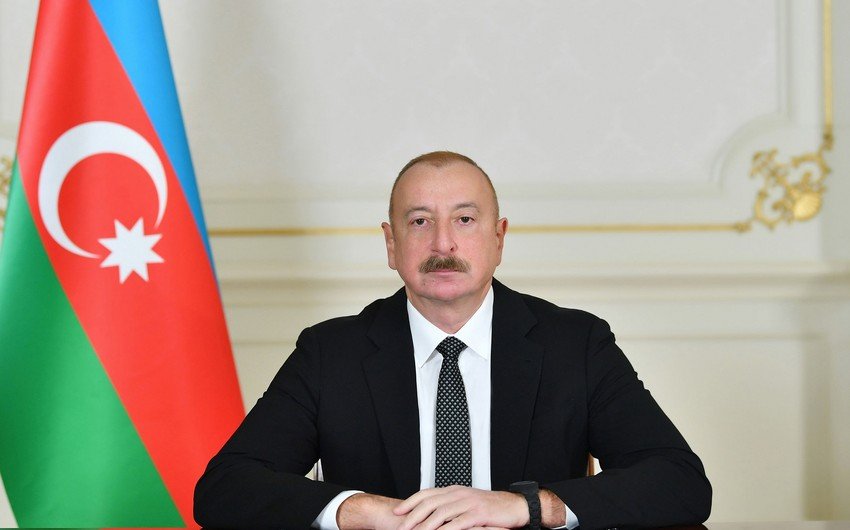
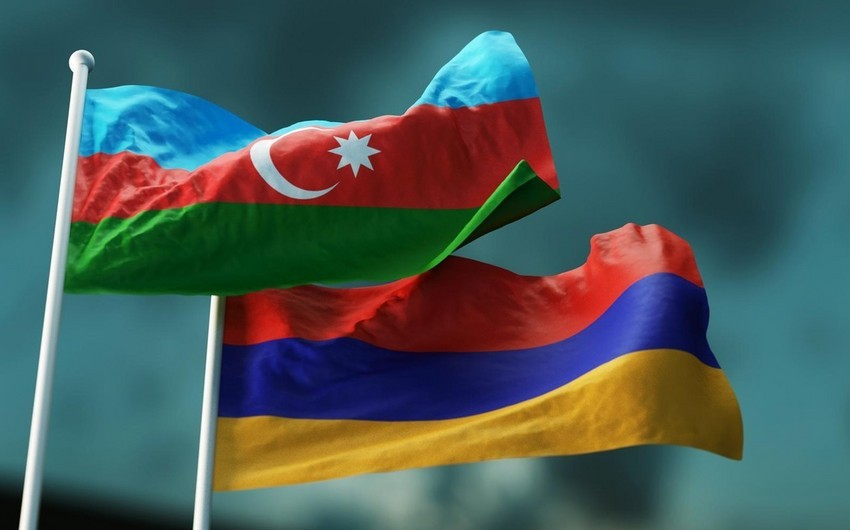
.jpg)
.jpg)
.jpeg)

